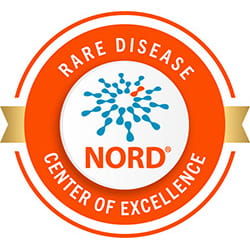Leading the Way for Families with Eosinophilic Disorders
If you or your child has an eosinophilic disorder, you already know how often these conditions can be misdiagnosed and / or misunderstood. Our center, the first of its kind in the United States, provides help for children and adults from a team of international leaders in diagnosing, treating and researching these rare disorders (eosinophilic esophagitis [EoE], eosinophilic gastritis [EoG], eosinophilic colitis [EoC], eosinophilic gastroenteritis [EGE], hypereosinophilic syndrome [HES]).
The Cincinnati Center for Eosinophilic Disorders (CCED) is not only the most comprehensive clinic for these disorders, seeing both children and adults, but is also a dedicated research center. It is the synergy of our clinical and research expertise with family collaborations that allow us to continue to provide leading treatment strategies to change the outcome together.
Video Resources
The Cincinnati Center for Eosinophilic Disorders provides eosinophilic disorder-related videos for healthcare professionals and families. Learn more in the Rothenberg CURED Lab video library.
Give Today
We truly appreciate the generous funding and donations supporting our research to improve patient outcomes at the Cincinnati Center for Eosinophilic Disorders. Give today.








